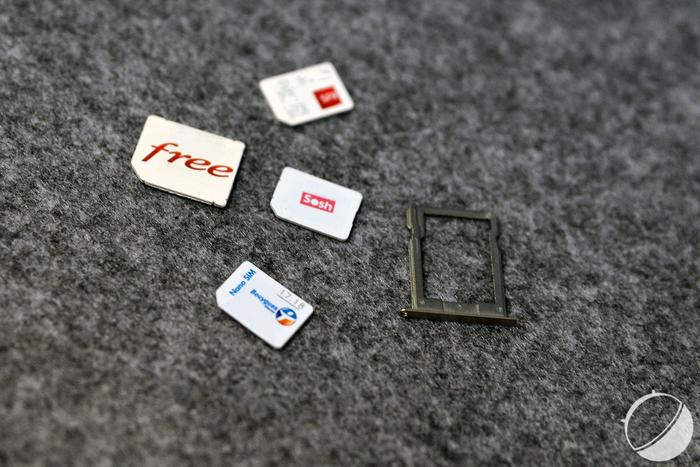Since the beginning of the year, SFR would have stopped simlocking its phones, at least Android smartphones. A practice that tends to slowly disappear among French operators. The opportunity to take stock of the locking of mobiles – the impossibility of using phones from another operator than the one from whom they were purchased – in France.
The French website Univers Freebox rightly points out that SFR no longer simlocks its phones since the beginning of the year. If we are to believe one of the help pages on the operator's site, phones sold at SFR (and, we assume, at RED) are no longer simlocked, with the exception of iPhones. From now on, non-simlocked smartphones can be recognized at SFR thanks to a specific yellow label stuck on the phone box.
What does the law say about locking phones?
We tended to forget it with the growth of the open market, that is to say smartphones purchased "naked", which allows you to no longer have to unlock your mobile. But locking (or simlocking, or even blocking) smartphones is still a fairly common practice among operators. However, it tends to disappear little by little. The simlockage (or locking, in French) of a smartphone allows an operator to block the use of SIM cards from competing operators and therefore to use their network. A practice that allowed operators to retain their customers at low cost under the guise of protecting customers against theft or fraud. In recent years, the price war launched by Free has encouraged French consumers to regularly change networks. Operators have less and less interest in preventing them from changing their SIM card.
Find out morePrice wars among operators: how to choose the offer that suits you?

Regarding this lock, the law has not changed since September 2010. As the government site reminds us, operators can still lock smartphones, but with time limits. “Article 5 of Decision No. 2005-1083 of the Electronic Communications and Postal Regulatory Authority (ARCEP) requires this operation to be free of charge 6 months after the purchase of the terminal. On September 23, 2010, the member operators of the French Telecoms Federation (FFT) undertook to reduce this period to 3 months at the request of the Secretary of State for Consumer Affairs”.
There is an additional subtlety (article 5). These three months only apply to smartphones sold with a contract with commitment: "The operator has the obligation to communicate systematically and free of charge to the subscriber the procedure for deactivating this mechanism at the end of a period of plus equal to the duration of the customer's possible commitment to his operator, which must in no case exceed six months [Editor's note: 3 months since September 2010] from the date of conclusion of the subscription contract”. In the case of a non-binding contract (at Sosh, RED or Bouygues Telecom), unlocking is not subject to any minimum time. Smartphones can therefore be locked, but operators are required to unlock them as quickly as possible when requested by their customer.
Who locks their phones, and who sells them unlocked?
Concretely, who locks and who does not lock? The operators are never very clear on the question. Here is what we know today about the unlocking of French operators.
To follow us, we invite you to download our Android and iOS application. You can read our articles, files, and watch our latest YouTube videos.
Medical deserts, public services: what assessment of Macron on rurality?
What is the best Oppo smartphone to choose?
The best phones in 2021 for photos and video
Good Plan: the recap of 4G packages on sale